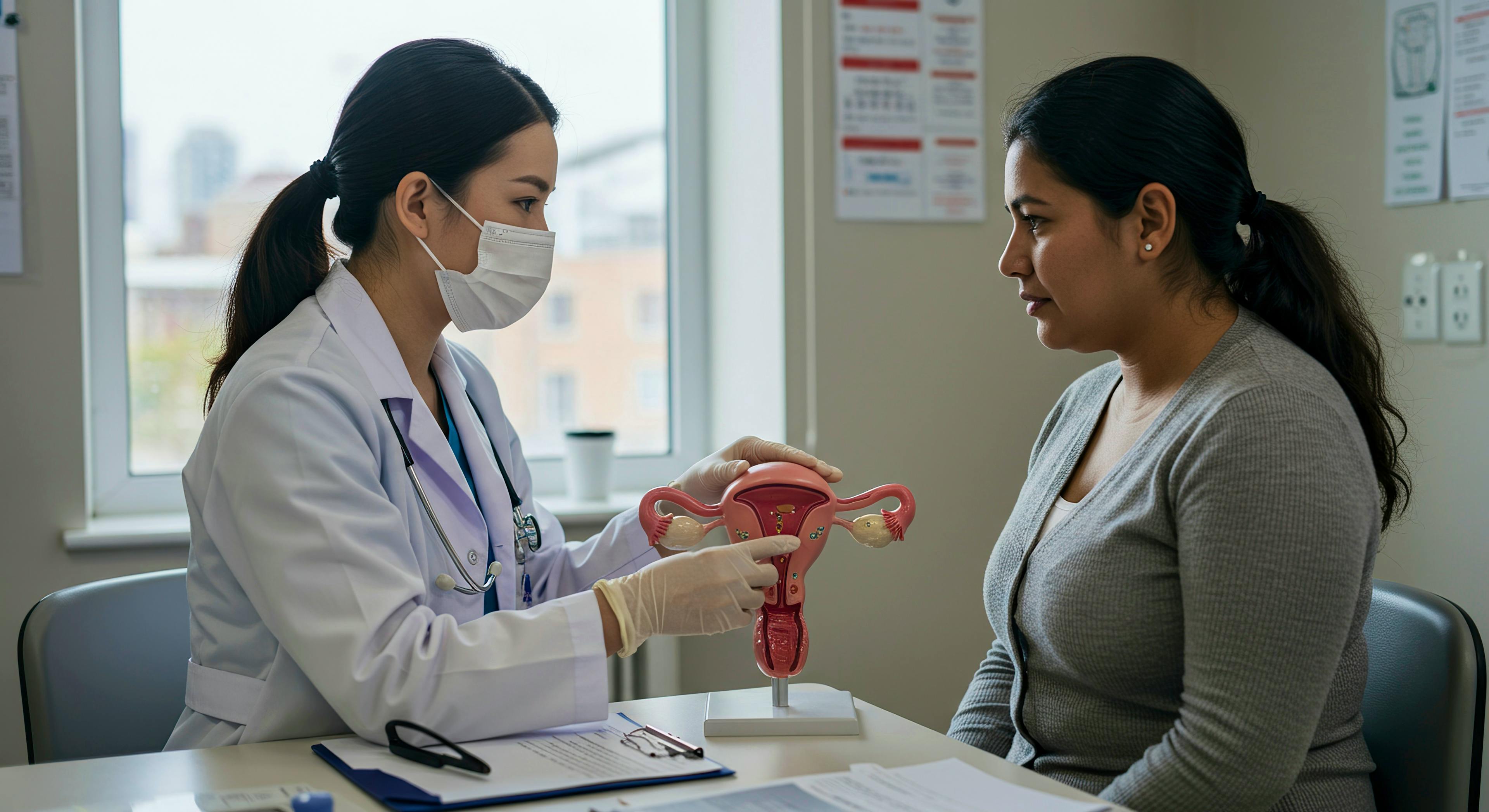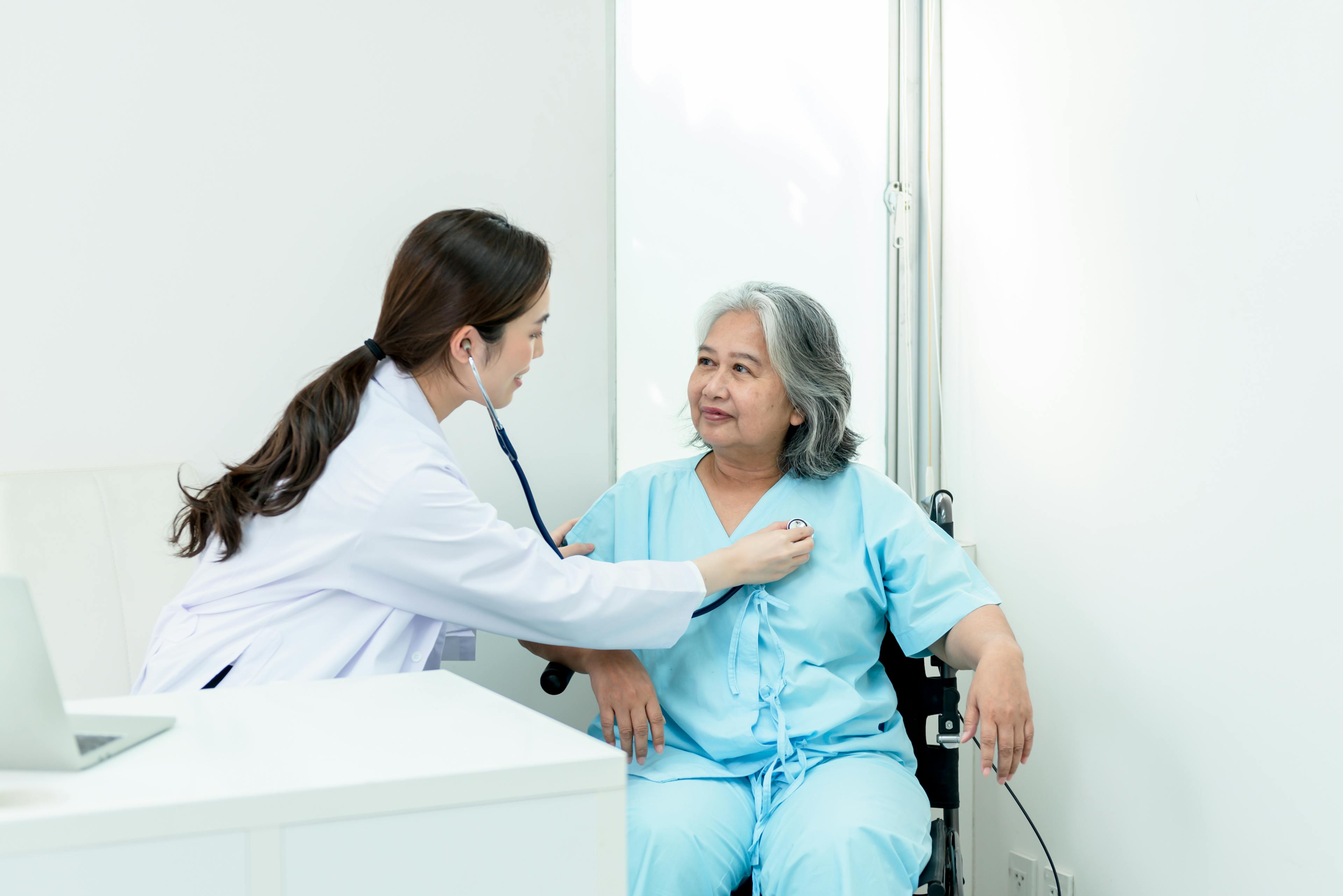To maintain good health as a woman, it takes more than just annual checkups with your primary care doctor. You also need a well-woman exam, which provides the specialized preventive care required to address your reproductive and overall health.
These yearly checkups help to identify potential health risks early and provide a space to discuss topics such as contraception, menstruation, menopause, and sexual health, empowering you to make informed decisions about your health.
What is a well-woman exam?
A well-woman exam is a yearly comprehensive checkup that prioritizes preventive care for women. Meant for women of all ages, well-woman exams are an opportunity to assess your reproductive health, review your medical history, and address any concerns related to your overall health. The visit focuses on understanding your unique needs and creating a personalized plan with one of our OB/GYNs to support your long-term health and well-being.
What does a well-woman exam include?
A well-woman exam at CLS Health involves a thorough review of your health to gain a clear understanding of your needs. During the visit, your doctor will:
- Review your general and sexual health history, including current medications and any health concerns.
- Conduct family planning and menopause counseling specific to your stage of life and goals.
- Perform a physical exam, which may include a breast exam, pelvic exam, and Pap smear, depending on your age and health history.
- Recommend and administer necessary laboratory tests, such as blood work or HPV testing, to detect underlying conditions.
Your well-woman exam may also include specialized evaluations depending on your symptoms or health needs. Here are a few of the exams CLS Health providers perform:
Pelvic exam
This part of the exam evaluates the health of your reproductive organs, including the vagina, cervix, uterus, and ovaries. Your healthcare provider will use a speculum to examine the cervix and may perform a manual check to feel for abnormalities.
Breast exam
A clinical breast exam helps detect changes in breast tissue, such as lumps or unusual texture, and plays a key role in maintaining breast health. When abnormalities are found early—before they grow larger—treatment is often less invasive, and survival rates improve. These exams complement mammogram screenings and are an important part of proactive healthcare.
Wellness screening
Routine screenings during a well-woman exam may include measurements of your blood pressure, height, and weight. These foundational assessments help uncover potential risks for conditions like hypertension or obesity.
Pap smear
A Pap smear collects cells from the cervix to check for abnormalities, including precancerous changes or cervical cancer. Your provider may also recommend HPV testing depending on your age and health history.
Is a well-woman exam enough for a physical exam?
While a well-woman exam covers reproductive and sexual health, it does not replace a general physical exam. Your primary care physician evaluates broader health concerns, such as heart health, cholesterol levels, and skin abnormalities. Both exams are important for comprehensive care and work together to ensure you are in good health.
Are well-woman exams covered by insurance?
Most insurance plans, including those under the Affordable Care Act, cover annual well-woman exams as part of preventive care. Additional tests or screenings, such as blood work or genetic testing, may have separate costs. It's a good idea to confirm coverage details with your insurance provider before your appointment.
If you're looking for top-rated OB/GYNs in Houston, TX, CLS Health makes it easy to find in-network doctors who accept over 100 insurance plans. Our team offers same-day appointments and comprehensive care to meet your needs. Visit one of our conveniently located offices in Clear Lake, Texas City, or the Galleria area.
Our Well-Woman Exam Services
HPV Vaccine
Protect yourself from HPV-related diseases, including cervical cancer, by staying up-to-date with this highly recommended vaccine. It’s a vital step in preventing common and potentially life-threatening health conditions caused by the human papillomavirus.
Blood Test Exam
Routine blood tests help uncover underlying health conditions, such as anemia, thyroid disorders, and more. These exams provide critical insights into your overall health and support early diagnosis and treatment of potential issues.
Mammogram
Our team provides referrals for mammograms, an imaging tool that detects breast cancer in its earliest stages. Early detection through mammograms can significantly improve treatment outcomes and long-term health.
Pap Smear
A Pap smear is a crucial screening for spotting cervical abnormalities, such as precancerous changes or infections. This preventive measure helps to maintain reproductive health and make sure there are no abnormalities.
Bone Density Scan
Monitor your bone health with a bone density scan, especially if you’re postmenopausal or have risk factors for osteoporosis. This test helps assess bone strength and guide preventive or corrective treatments.
FAQs
STD testing isn’t automatically included but can be requested based on your sexual history or specific concerns. Your healthcare provider may recommend testing based on your sexual activity, medical history, or symptoms. On average, over 2.4 million STIs are reported annually in the U.S., emphasizing the importance of regular screening for sexually active individuals.
For accurate results, avoid activities that could interfere with your exam. Refrain from douching, using vaginal creams, or engaging in sexual activity 24 hours before your appointment. These actions can alter test results or obscure potential concerns, making it harder for your provider to give an accurate assessment.
Yes, you can have a well-woman exam during your period, though it may be more comfortable to schedule it for a time when you are not menstruating. Your provider can still perform most parts of the exam, but for specific tests like a Pap smear, it might be better to wait until your period ends for the most accurate results.
Yes, Family Nurse Practitioners (FNPs) are qualified to conduct well-woman exams and provide the same comprehensive care as gynecologists. They can perform pelvic exams, Pap smears, and screenings.
Yes, a well-woman exam is still necessary even after menopause. Postmenopausal women are at a higher risk for conditions like osteoporosis and certain gynecological cancers and regular exams help monitor these risks and ensure early detection.



